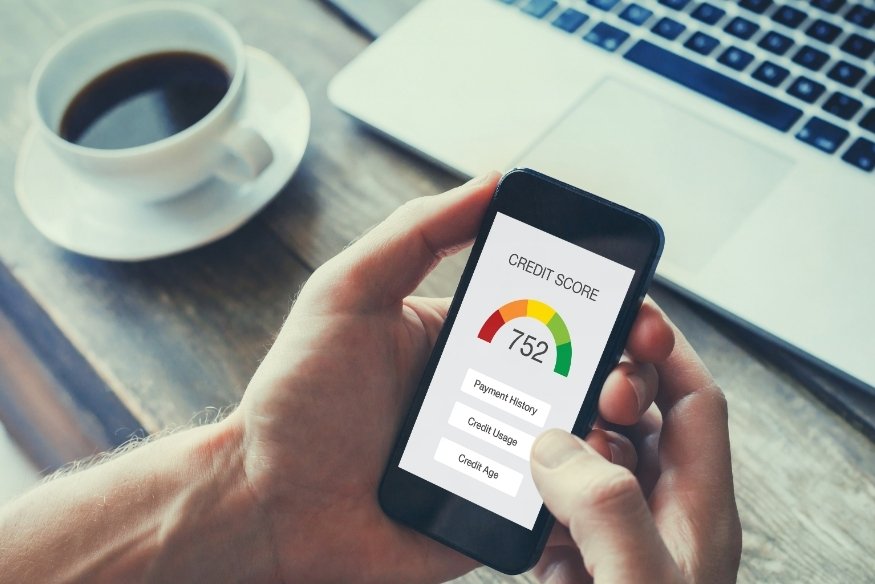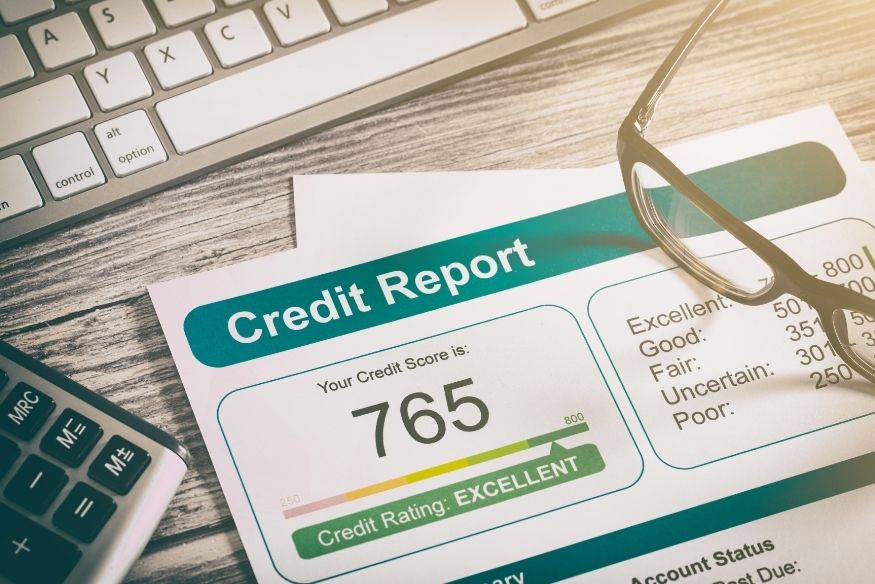Using a credit card responsibly is one of the most effective ways to demonstrate that you can manage credit wisely. When used with care, a credit card becomes more than just a payment method — it’s a powerful tool for building your financial credibility.
By consistently paying your credit card bill on time and keeping your balance low relative to your credit limit, you show lenders that you are reliable and disciplined. These habits send a strong signal to credit bureaus, which can result in a gradual improvement to your credit score over time.
In addition to making everyday purchases, a credit card helps you establish a positive credit history, especially if you’re just starting out or rebuilding your financial reputation. Responsible usage — such as avoiding maxing out your limit and staying within your budget — helps create a strong credit profile, which can open doors to better loan terms, lower interest rates, and increased financial opportunities in the future.
In short, when used smartly and with consistency, a credit card is not just convenient — it’s a key step toward long-term financial health.
Key Takeaways
- Using a credit card responsibly can help improve your credit score.
- Making regular payments is crucial for building a positive credit history.
- Keeping your credit utilization ratio low is essential for demonstrating credit management skills.
- A credit card can be a valuable tool for making purchases and building credit.
- Building good credit takes time and responsible financial behavior.
Understanding Credit Scores and Their Importance

Your credit score is a critical factor when it comes to accessing loans, credit cards, and even housing or job opportunities. It’s typically a three-digit number that reflects how trustworthy you are to lenders. The higher your score, the stronger your financial reputation—and the easier it becomes to secure credit under favorable terms.
Credit scores generally range from poor to excellent, with higher numbers indicating better credit health. These scores are calculated based on several key factors:
- Payment history: Do you pay your bills on time?
- Credit utilization: How much of your available credit are you using?
- Credit history length: How long have you had credit accounts?
- Types of credit: Do you use a mix of credit cards, loans, and other credit products?
- Recent credit inquiries: Have you applied for new credit recently?
Understanding these components is essential if you want to build good credit and maintain financial flexibility throughout your life.
How Credit Scoring Systems Vary Globally
In some countries, credit scoring focuses primarily on negative events—such as missed payments or defaults. However, more comprehensive systems consider both positive and negative behavior. This encourages individuals to develop good credit habits, like consistent on-time payments and responsible use of credit.
This approach rewards proactive financial behavior and motivates people to manage their credit responsibly, rather than penalizing them solely for mistakes.
Why Building Good Credit Matters
To build good credit is to build a stronger financial future. A high credit score can lead to:
- Lower interest rates on loans and credit cards
- Higher chances of loan approvals
- Better terms on mortgages, car loans, and personal financing
- Easier access to rental housing, especially in competitive markets
- Increased credibility with potential employers in finance-related roles
Good credit isn’t just about borrowing money—it’s about opening doors to financial opportunity. Whether you’re applying for a loan, signing a lease, or starting a business, your credit score is often a key part of the decision-making process.
By learning how credit scores work and taking steps to improve yours, you lay the groundwork to build good credit that supports your goals now and in the future.
The Relationship Between Credit Cards and Credit Scores
Managing your credit card well is crucial for a good credit score. Your credit score shows how reliable you are with money. Credit cards are a big part of this. Knowing how they affect your score helps you improve it.
Payment History: The Most Important Factor
Payment history is a big part of your credit score. Paying on time is essential. Late payments hurt your score, so automatic payments can help. Try to pay more than the minimum to cut down debt.
- Set up automatic payments to avoid late fees.
- Make more than the minimum payment to reduce debt.
- Monitor your account regularly for any errors or unauthorized transactions.
Credit Utilization: Keeping Balances Low
Credit utilization is how much of your credit you use. Keeping this low is key for a good score. Use less than 30% of your credit to show you can handle it well. High usage can mean financial trouble and hurt your score.
- Keep your credit card balances low compared to your limits.
- Consider requesting a credit limit increase to lower your utilization ratio.
- Pay off your balance in full each month if possible.
Selecting the Right Credit Card to Build Good Credit
Choosing the right credit card is a key step when you’re working to build good credit. The card you select can either support or slow down your progress, especially if you’re just starting out or recovering from past financial challenges. Understanding how credit cards work and which features to prioritize can make all the difference in shaping your credit history.
Secured Credit Cards for Beginners
For individuals with little or no credit history, secured credit cards are often the most suitable option. These cards require a refundable deposit that typically determines the credit limit, making them more accessible than traditional cards. The most important feature of secured cards is that they usually report your payment activity to major credit bureaus. This means your responsible use of the card—such as making payments on time and maintaining a low balance—can directly impact your credit score and help you build good credit over time.
Credit Builder Cards

Credit builder cards are designed specifically to help individuals establish or repair their credit profile. Although they often come with lower credit limits and fewer features, they focus on encouraging consistent, positive credit behavior. Many offer basic tools such as alerts for upcoming payments or summaries of your usage to keep you on track. While these cards might not offer rewards or cash back, their real value lies in their role as stepping stones to better credit health.
Features to Look for in Your First Credit Card
When selecting your first credit card, it’s important to examine elements like annual fees, interest rates, and whether the issuer offers tools to help you monitor your spending and credit score. Cards with no or minimal annual fees can keep costs down while you focus on improving your credit. A lower interest rate is also beneficial, especially in situations where you may not be able to pay off your balance in full. Having access to credit tracking tools and payment reminders can support your efforts and help you build good credit with greater confidence.
Building Credit Over Time
By choosing a credit card that matches your financial situation and using it responsibly, you lay the foundation for stronger credit over time. Each on-time payment and every effort to manage your balance wisely contributes to a better credit profile. With patience and discipline, the right credit card becomes a powerful tool to build good credit and unlock future financial opportunities.
Essential Habits to Build Good Credit with Credit Cards
Building good credit with credit cards takes discipline and a few key habits. To use your credit cards wisely and boost your score, manage them well. This means keeping up with payments, controlling spending, and watching your accounts closely.
Setting Up Automatic Payments
One key habit is setting up automatic payments. This way, you’ll never forget to pay on time, which is key for a good credit score. To set up automatic payments, log in to your account, go to the payment section, and choose the automatic payment option. You can pick to pay the minimum, the full balance, or a set amount. Set up autopay on your account to ensure you never miss a payment.
Creating a Realistic Spending Plan
Another important habit is making a realistic spending plan. This means knowing your income, tracking your expenses, and planning how to spend your money. With a clear financial picture, you can avoid overspending and keep your credit use low. A well-planned budget helps you stay in control of your finances. Start by listing your income and fixed costs, then plan for savings and discretionary spending.
Keeping Track of All Your Accounts
It’s also crucial to keep an eye on all your accounts. This includes checking your credit card statements, reviewing your credit report often, and knowing your credit use ratio. By staying on top of your accounts, you can spot any mistakes or issues quickly and fix them. Use online tools or mobile apps to track your accounts and get alerts for important events, like payment due dates or suspicious activity.
- Monitor your credit card statements regularly.
- Check your credit report at least once a year.
- Keep your credit utilization ratio below 30%.
Strategic Payment Practices for Credit Improvement
Making smart payment choices can boost your credit score. Good payment habits are key to a healthy credit profile. By using the right strategies, you can see your credit score go up over time.
Paying in Full vs. Carrying a Balance: Myths Debunked
Paying your credit card bill in full every month is the best choice. It avoids interest and keeps your credit use low. Carrying a balance can lead to debt and hurt your score. The idea that carrying a balance helps your score is a myth; it actually harms it.
- Paying in full avoids interest charges.
- Carrying a balance can lead to debt accumulation.
- A low credit utilization rate is beneficial for your credit score.
Optimal Payment Timing for Maximum Credit Impact
The timing of your credit card payments matters too. Paying before the due date means your payment is on time. This avoids late fees and keeps your credit report clean. Also, making payments throughout the month can keep your credit use low.
- Make payments before the due date to avoid late fees.
- Multiple payments throughout the month can lower your credit utilization rate.
- Consistency in payment timing helps maintain a positive credit history.
By following these smart payment tips, you can better your credit health. This will improve your overall financial situation.
Managing Your Credit Utilization for Better Scores
Credit utilization is key to your credit score. It shows how much of your available credit you’re using. Keeping it in check can improve your financial health.
The 30% Rule and Why It Matters
Experts say to keep your credit utilization under 30%. For example, if you have a credit limit of €1,000, aim to spend less than €300. This shows lenders you handle credit well.
Techniques to Keep Utilization Low
There are ways to manage your credit utilization. Two good methods are asking for a credit limit increase and making more payments each month.
Requesting Credit Limit Increases
Asking for a higher credit limit can lower your utilization ratio. This is helpful if you spend the same amount. But, don’t let the higher limit tempt you to spend more.
Making Multiple Payments Per Month
Pay off your balance more often to lower your utilization. This method is reported to credit bureaus. It takes discipline but works well.
How to Build Good Credit Through Length of History

To build good credit, understanding how long you’ve had credit is essential. A longer credit history can have a positive impact on your credit score because it shows lenders that you’re capable of managing credit responsibly over time.
The Value of Keeping Older Accounts Active
Keeping old credit accounts active is a smart move for maintaining and improving your credit score. Even if you don’t use these accounts regularly, they continue to add length to your credit history and contribute to your overall score.
- Make small purchases on older cards to keep them active and avoid account closure due to inactivity.
- Set up automatic payments to ensure bills are paid on time and to maintain a positive payment history.
- Monitor your accounts regularly to detect any errors or fraud, which could negatively affect your credit.
These simple habits help you demonstrate long-term financial responsibility, a key factor in your ability to build good credit.
Starting Early: Credit Building for Young Adults
For young adults, starting early is one of the best strategies to create a strong credit foundation. Establishing credit at a young age gives you more time to build a solid history, which is crucial when applying for loans or large purchases in the future.
- Apply for a secured credit card or a credit builder card to begin creating a personal credit profile.
- Make timely payments every month to establish a consistent, positive payment history.
- Keep your credit utilization low, ideally under 30%, to show that you can manage credit wisely.
By starting early and practicing good habits, young adults can effectively build good credit and secure better financial opportunities as they move through life.
Diversifying Your Credit Portfolio
Having a mix of different credit types is an effective strategy to build good credit. A well-diversified credit portfolio demonstrates to lenders that you can handle multiple forms of borrowing responsibly, which contributes positively to your credit score.
Different Types of Credit and Their Impact on Your Score
Credit mix refers to the variety of credit products you use. These may include revolving credit, such as credit cards, and installment credit, like personal loans, auto loans, or mortgages. Managing different types of credit well sends a strong signal to lenders about your financial discipline.
| Type of Credit | Impact on Credit Score |
|---|---|
| Credit Cards | High utilization can negatively impact your score, but responsible use can improve it. |
| Installment Loans | Regular, on-time payments can significantly boost your credit score. |
| Mortgages | A mortgage, being a large loan, can have a substantial positive impact if managed well. |
Each type of credit has a specific influence on your score. Together, they create a more complete picture of your ability to manage financial obligations over time.
Balancing Multiple Credit Products Responsibly
While diversifying your credit portfolio is important, it’s equally vital to manage it responsibly. Applying for several credit products at once can result in multiple hard inquiries, which may lower your credit score in the short term. Focus on quality over quantity by selecting credit types that serve a real purpose in your financial life.
By maintaining a healthy credit mix, paying all your obligations on time, and keeping credit utilization low, you not only enhance your credit profile but also consistently build good credit. Over time, this approach strengthens your creditworthiness and opens doors to better borrowing terms.
Tracking Your Credit Building Progress
To make sure you’re on the right path to build good credit, it’s essential to track your progress consistently. Reviewing your credit report and score helps you understand how your financial behaviors are affecting your credit profile. This allows you to make informed adjustments and continue improving your credit over time.
Credit Monitoring Resources
There are many reliable tools available to help you monitor your credit. Services that allow you to check your credit score and report give you access to valuable insights about your credit history. These platforms typically provide alerts about changes to your report, helping you stay ahead of any potential issues.
- Regularly check your credit report for any inaccuracies that could hurt your score.
- Use credit monitoring services to receive notifications about new accounts, inquiries, or changes in your credit status.
- Understand the key factors affecting your score, such as payment history, credit utilization, account age, and recent activity.
Tracking these elements regularly can help you identify trends and act quickly if something needs your attention.
How to Interpret Changes in Your Credit Report

When reviewing your credit report, it’s crucial to understand what the changes mean. Positive developments, like paying on time or reducing your credit utilization, usually result in a higher score. Negative trends, such as late payments or opening too many new accounts, can drag your score down.
- Ensure that your payment history is accurate, as it plays a major role in your score.
- Monitor your credit utilization and try to keep it below 30% of your total limit.
- Pay attention to the age of your credit accounts and any new inquiries, since these also influence your credit rating.
By consistently monitoring your credit and understanding what affects it, you take full control of your journey to build good credit. Staying engaged and proactive ensures your credit remains healthy and aligned with your long-term financial goals.
Credit Card Mistakes That Damage Your Credit Score
Credit card mistakes can hurt your credit score a lot. It’s key to know what to avoid. Using credit cards can lead to bad habits or errors that lower your score. Knowing these common mistakes helps keep your credit healthy.
Late or Missed Payments
Payment history is a big factor in your credit score. Late or missed payments can drop your score a lot. To prevent this, set up automatic payments or reminders. This way, you’ll never miss a payment.
Even one late payment can hurt. So, making payments on time is very important.
Maxing Out Your Credit Limits
Using all your credit can hurt your credit score. Keep your credit utilization below 30% to avoid this. High credit use can show lenders you’re spending too much.
It’s best to keep your balances low compared to your limits.
Applying for Too Many Cards in a Short Period
Applying for many cards quickly can worry lenders. Each application causes a hard inquiry on your report. This can make you seem riskier.
So, space out your applications if you need to get more cards.
Credit Building Strategies Using Local Resources
To build good credit effectively, it’s important to understand how credit reporting works where you live. Each region has its own systems and tools, and becoming familiar with them is essential to strengthening your credit profile. Navigating these local credit structures and using the resources available to you can make a significant difference in your financial journey.
Understanding Local Credit Reporting Systems
Every credit system collects and evaluates data on how individuals manage their financial obligations. Knowing how your credit information is gathered and used helps you stay ahead and avoid surprises. To get the most out of your local system, you should:
- Understand how credit information is collected and reported by financial institutions.
- Review your credit report regularly to ensure all data is accurate and up to date.
- Monitor the effects of your credit behavior, including how payment history, credit utilization, and new accounts influence your score.
By staying informed, you gain the clarity needed to make better credit decisions and maintain a healthy score.
Leveraging Local Tools for Credit Assistance
Many regions offer tools and services to support responsible credit building. These can include:
- Access to financial counseling for managing debt, improving budgeting habits, and understanding how to optimize credit use.
- Digital tools and banking apps that track your score and provide feedback on how to improve it based on your financial habits.
Utilizing these resources consistently will help you build good credit more effectively and confidently. Over time, these practices contribute to greater financial stability and access to better lending options.
Conclusion: From Credit Basics to Credit Strength

To build good credit, you need time, consistency, and discipline. But with the right strategies and healthy credit card habits, improving your score becomes an achievable goal. Understanding how credit scoring works and using credit responsibly are essential steps toward a more secure financial future.
Start by making payments on time and keeping your credit utilization low. Regularly monitoring your credit report allows you to track progress, catch errors, and stay proactive. Using your credit card the right way signals to lenders that you can manage financial obligations responsibly.
Selecting a credit card that fits your financial goals and maintaining good habits can significantly enhance your credit standing. By following the practices outlined in this article, you’re building a solid foundation that will support your financial well-being in the long term.
Now that you know why it’s important to build good credit and how to use credit wisely, it’s time to apply these strategies in your daily life. With patience, consistency, and the right mindset, a stronger credit profile—and all its financial advantages—is within your reach.
References
NerdWallet – How to Build Credit
Guide on the steps to build and improve your credit, including tips on making timely payments, keeping credit utilization low, and regularly checking your credit reports.
🔗 nerdwallet.com
Investopedia – 4 Ways to Build Your Credit and Your Credit Score
Article explaining four methods to build credit, including getting a student credit card, using a secured card, applying for a credit-builder loan, and finding a co-signer.
🔗 investopedia.com









